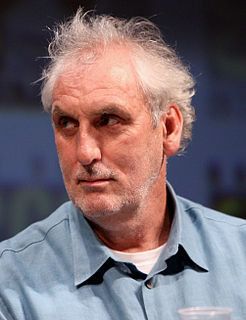A Quote by Alexander Chee
The beauty of Maine is such that you can't really see it clearly while you live there. But now that I've moved away, with each return it all becomes almost hallucinatory: the dark blue water, the rocky coast with occasional flashes of white sand, the jasper stone beaches along the coast, the pine and fir forests somehow vivid in their stillness.
Related Quotes
The coast is an edgy place. Living on the coast presents certain stark realities and a wild, rare beauty. Continent confronts ocean. Weather intensifies. It's a place of tide and tantrum; of flirtations among fresh- and saltwaters, forests and shores; of tense negotiations with an ocean that gives much but demands more. Every year the raw rim that is this coast gets hammered and reshaped like molten bronze. This place roils with power and a sometimes terrible beauty. The coast remains youthful, daring, uncertain about tomorrow. The guessing, the risk; in a way, we're all thrill seekers here.
The name Alaska is probably an abbreviation of Unalaska, derived from the original Aleut word agunalaksh, which means "the shores where the sea breaks its back." The war between water and land is never-ending. Waves shatter themselves in spent fury against the rocky bulwarks of the coast; giant tides eat away the sand beaches and alter the entire contour of an island overnight; williwaw winds pour down the side of a volcano like snow sliding off a roof, building to a hundred-mile velocity in a matter of minutes and churning the ocean into a maelstrom where the stoutest vessels founder.
I can tell that the Greater Yellowstone from the Tetons, to the Lamar Valley where wolves howl and grizzlies roam, acts as my spine, my range of memory that ties me to landscape of Other. And that the ocean from the rocky coast of Maine, to the Florida everglades, to the looming cliffs at Big Sur, sustain me, remind me we are nothing without salt water, wind, and waves.





































